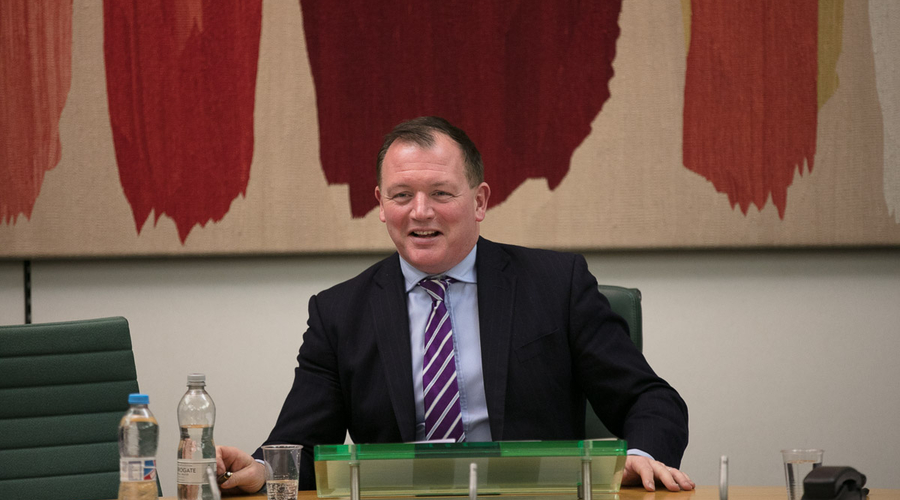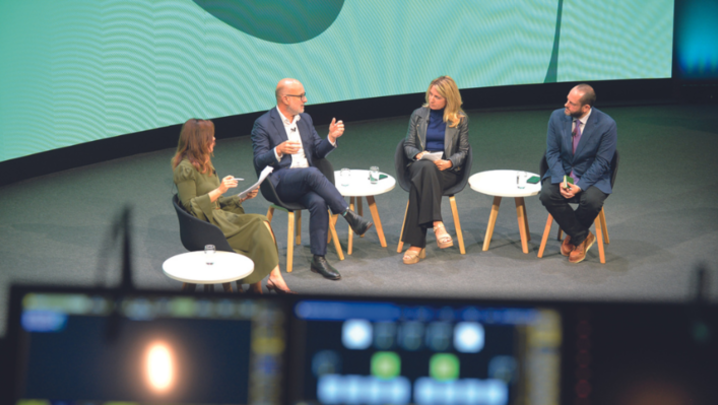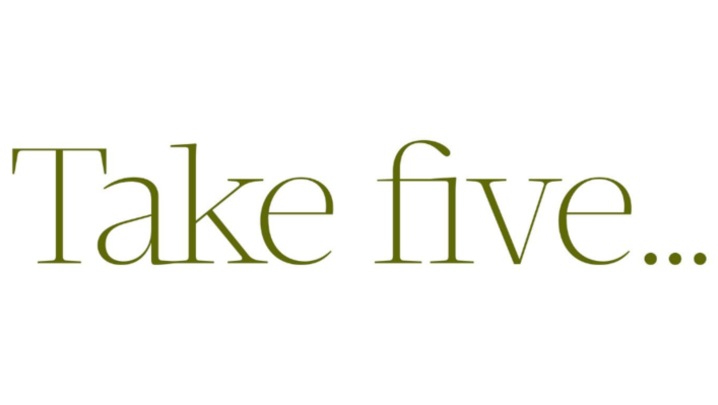Steve Clarke is persuaded by an RTS panel that transparency will be central to content platforms maintaining trust.
At roughly the same time the Prime Minister faced three consecutive defeats over Brexit in the House of Commons, across the road in Portcullis House another important discussion was taking place – an RTS All-Party Parliamentary Group debate on “The future of TV journalism in an age of fake news and disinformation”.
Of course, the stakes were hardly of the same magnitude as the pain and chaos of Brexit. For those involved in television news, however, the online era is throwing up huge challenges for news organisations and the digital platforms that are gaining popularity at the expense of traditional outlets.
In charge of proceedings was no lesser figure than Damian Collins MP, Chair of Parliament’s Digital, Culture, Media and Sport Committee.
His attempts to hold Facebook to account have made him a hero to those worried that social media may be contributing to the erosion of democracy.
On this occasion, he may not have had the elusive Mark Zuckerberg in the room, but he did have a very distinguished panel: Deborah Turness, President of NBC News International; Jamie Angus, the director of the BBC’s World Service Group; Ben McOwen Wilson, YouTube’s regional director for EMEA; and Jonathan Thompson, CEO of Digital UK, which operates Freeview.
The panellists were broadly upbeat about the future of TV news, despite changing consumption habits, different distribution models and the spectre of fake news, recently joined by “deep fake” videos as AI makes it easier still to manipulate pictures and sound to fabricate stories.
Both Turness and Angus were the beneficiaries of new investment – the former in Euronews (in which NBC took a 25% stake, worth a reported $30m, in May 2017), while the World Service received a five-year injection of £289m, announced in late 2015.
And, as Angus pointed out, Sky’s new owner, Comcast, had recently given assurances that it would back Sky News for a decade.
Alongside these developments, well-resourced, state-funded news channels, including “some pernicious ones”, such as Russia Today and China’s CGTN, have made an impact. The latter will open a new hub in London next year.
The BBC World News channel was in good shape, reported Angus. It had confounded predictions that rolling, 24-hour-news channels would become obsolete in an online world. “It’s the BBC’s single, most-watched channel,” he said.
The phenomenon that is President Trump is good for all news providers. However, the obsession with Trump in general – and particularly his spats with the likes of CNN – was diverting attention away from important stories in other places such as South Asia and sub-Saharan Africa, suggested the World Service executive.
“There, people are suffering genuine threats to life and limb.… The BBC is one of the very few remaining international broadcasters to genuinely invest in news gathering in parts of the world where it is not economically viable for commercial broadcasters to have a significant presence,”
“There, people are suffering genuine threats to life and limb.… The BBC is one of the very few remaining international broadcasters to genuinely invest in news gathering in parts of the world where it is not economically viable for commercial broadcasters to have a significant presence,” Angus said.
In East Africa, the BBC has 300 journalists, a resource that privately owned news organisations would find uneconomic.
As impressive as this sounds, in common with other traditional news outfits, the BBC’s audiences are ageing as young people skip scheduled bulletins (see below).
In the online space, news is everywhere and one of the main platforms is YouTube, where trusted suppliers play an important role.
McOwen Wilson outlined the various ways in which users could watch news content on the Google-owned platform.
News clips, live streaming, mid-length reports of around 10 to 12 minutes and “many thousands of hours” of longer documentaries were all available to YouTubers. These were supplied through partnerships with a range of UK and international broadcasters and other news organisations.
He explained: “In the UK, we work with all of the news providers – the BBC, Sky, Channel 4, ITN and ITV – and with international broadcasters such as Euronews, Russia Today, Al Jazeera and others.
“Alongside this, we have strong relationships with people who provide us with video clips, such as the Telegraph, the Guardian, the FT and the Economist.
“Supplementing this, we also have a number of endemic players, such as the BuzzFeeds of this world.”
Jonathan Thompson, the CEO of Digital UK, which operates Freeview, stressed that impartial news was a vital component of UK public service broadcasting.
But, while the consumption of TV news on traditional platforms remained strong and, according to opinion polls, was the most trusted form of news in the UK, he expressed anxieties about the long-term outlook.
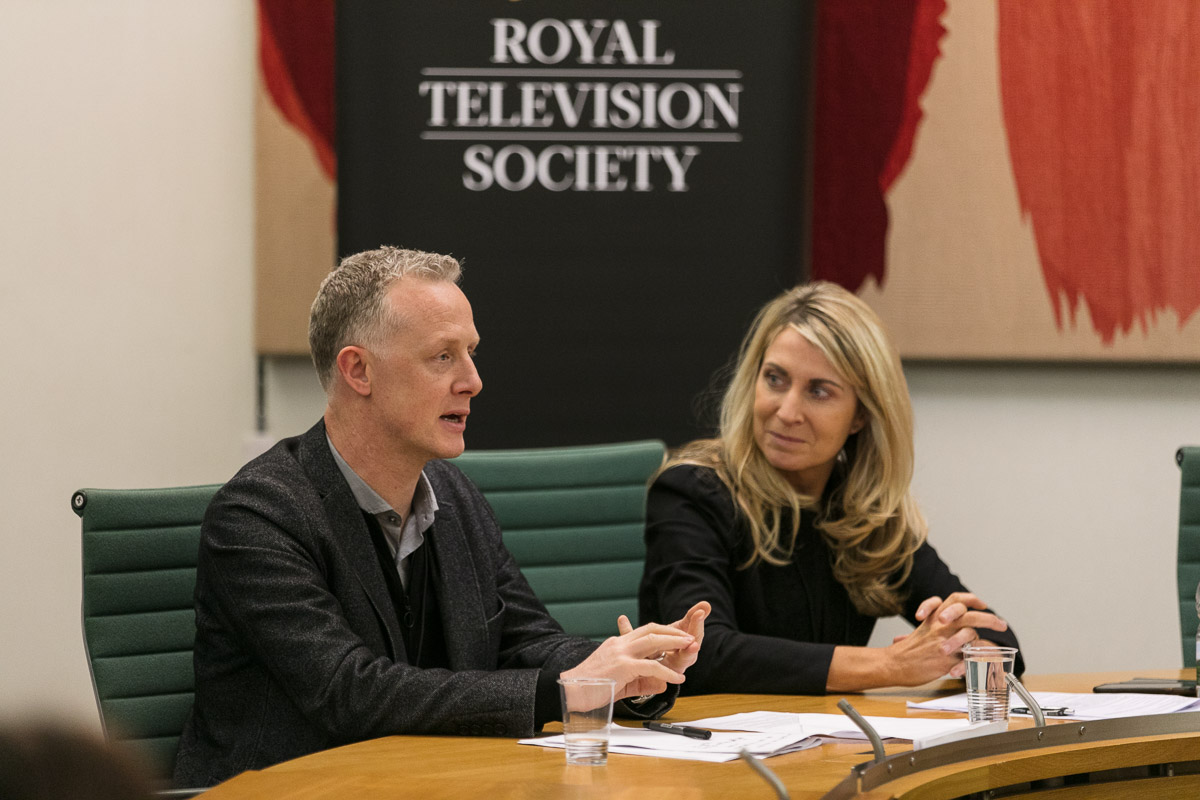
He worried about news’s economic sustainability, particularly in relation to the BBC licence fee, and about how younger audiences would connect to legacy news providers. Maintaining trust was also a concern.
Proper regulation of PSB services was essential. “One of the problems of today is the lack of ability to sanction online platforms for harmful content,” said Thompson.
Turness, one-time editor of ITV News, was able to provide a perspective from both sides of the Atlantic. She was the New York-based President of NBC News before she returned to Europe last year to take up her present role.
At Euronews, she said, “We have been very deliberate in asking, ‘How do you rebuild trust?” She added: “We are building Europe’s town square – all voices are welcome. We invite nationalists and populists to join the debate.”
She added: “We look for the light, not the heat, and believe that we must engage.… To be truly impartial is to engage with a broad spectrum of political views. How else will we be trusted by the majority of audiences?”
On the vexed issue of fake news, which she said was shared six times faster than the genuine article, the NBC executive questioned whether the term itself had become debased. In the US, both pro- and anti-Trump activists make accusations of fake news according to their own political prejudices.
“The term ‘fake news’ is a weapon used by everyone for their own convenience,” suggested Turness. “It’s becoming a devalued currency.”
As an aside, she pointed out that the assumption that Fox News was the most popular US news cable channel was incorrect. “It’s MSNBC, by some margin. The Rachel Maddow Show [fronted by a prominent Trump critic] is the number-one show at 9pm. Trump is driving huge engagement and huge ratings.”
At Euronews, Turness has overseen the introduction of The Cube news desk, staffed by “professional social journalists”. They have the verification skills to debunk fake news live on air.
“We have to say, ‘If this was in your newsfeed today and it’s not accurate, here’s how we were able to debunk it. Don’t just ignore it because it’s fake’. It’s part of a public service, if you like, to explain that,” said Turness.
At the BBC, its Reality Check service was introduced as a permanent fixture in January 2017. The initiative was a response to the proliferation of fake news, much of it posted as clickbait on Facebook and distributed peer-to-peer on WhatsApp.
Angus said that Reality Check was a response to audience demand in the run-up to the 2016 Brexit referendum: “There was a very clear message from the audience that didn’t want the kind of reporting that said – and this is a parody – A says X, B says Y, how do you know which is right, only time will tell.”
“Everyone is now doing ‘fact check’, including Russia Today. You’ve got to check which facts get checked and by whom.”
Turness said there should be a discussion to see if “an aggregation of trusted fact checking organisations” could emerge. Fact checking everything was impossible for one news provider/distributor because millions of pieces of fake news appear every day.
She continued: “We could do our own work and publish it so that it’s available to everyone else. Trusted brands could be brought together to form a whole.”
McOwen Wilson said that it was a priority for YouTube to ensure that authoritative news coverage appeared at the top of its search menu. Context was vital to help people make their own decisions regarding what they watched.
Clear labelling of news providers was important – so that users would know the BBC was publicly funded and that Russia Today was owned by the Russian state.
“We’re expanding the range of labels on YouTube,” he stressed. “We need to ensure that high-quality journalism thrives in the online world.”
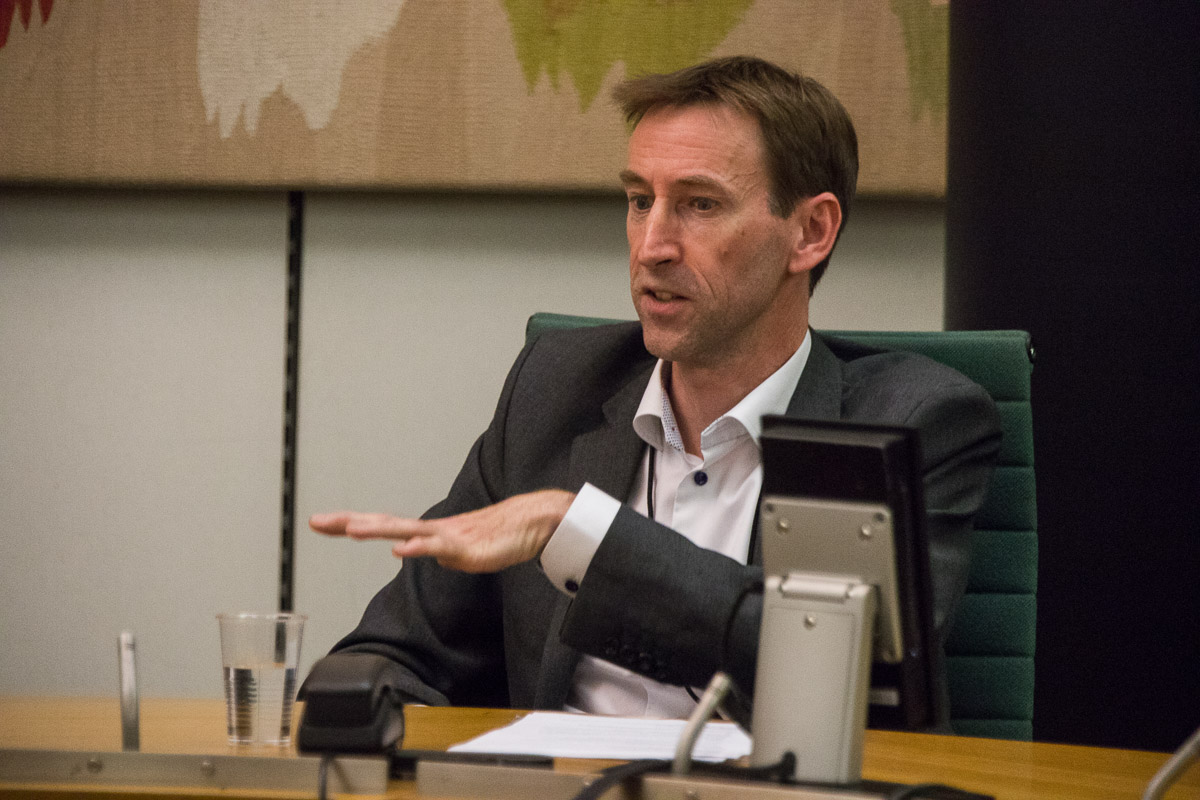
The YouTube executive added that news consumption from authoritative sources on the platform was up more than threefold over the past 18 months.
Reliable news encouraged people to come back for more, he argued: “We are working with young people to try and help them think through what fact checking is and getting them to start looking at multiple sources.”
He added: “To fight fake news, you need to elevate genuinely reliable content, and to suppress fake content.”
McOwen Wilson explained that a minimum of four authoritative UK news sources were needed before a story would be labelled as breaking news.
Damian Collins said that, in an online world driven by algorithms, technology could subvert the best intentions of news organisations and digital platforms. What could be done when the algorithm knew more about people’s personal tastes than even the users themselves, inquired the MP.
“We’re doing quite a lot of work at the BBC on what Tony Hall calls the public service algorithm,” replied Angus.
But how do you go about building an algorithmic product that serves a public-service purpose? Would this algorithm serve you some of what it thought you wanted, but also additional public service content that you didn’t know you were interested in until you got it?
“A digital Lord Reith,” suggested Collins to audience laughter.
The growing popularity of voice-activated smart speakers, powered by their own influential algorithms, poses another challenge to news providers.
“Voice is an important part of privileged discoverability for PSB content in a digital world,” said Angus. “We are working with voice platforms to ensure that BBC News has a strong presence globally.”
But supposing you ask Alexa for the headlines and get the latest gossip on the Kardashians, rather than an important breaking news story? “We have to promote the quality end of the market over what the algorithm gives you,” emphasised the World Service chief.
He continued: “If there is a critical incident, a national emergency and a need for quality public information, digital platforms need to ensure that the most accurate and more trusted news – often that is PSB content – gets to the top of the search results.”
That may be easier said than done. The case for a digital Lord Reith grows stronger every day.
‘The future of TV journalism in an age of fake news and disinformation was an RTS All-Party Parliamentary Group event held at Portcullis House, central London, on 4 December. It was chaired by Damian Collins MP, Chair of the Digital, Culture, Media and Sport Committee. The producer was Sue Robertson, with Jonathan Simon, Martin Stott and Nigel Warner.
The case for transparency
One way to combat and call out fake news is to make the processes of video news journalism more transparent. Turness highlighted Anatomy of a Killing, the online film made by the BBC for its strand Africa Eye, as an example of transparent reporting at its finest.
In this piece of open-source journalism, the reporters used digital tools, including Google Maps and Facebook, to prove that the Cameroon government’s assertion that its soldiers did not murder two women and two children was a blatant lie.
The Cameroon authorities had initially dismissed video footage of the incident as ‘fake news’. In the documentary, a split screen is used to identify precise locations in the video, which are matched against the same places identified by satellite mapping.
‘It’s the best piece of journalism I’ve seen all year,’ said Turness. ‘It’s absolutely critical that we continue to show our work and not only tell.… That way, we will increase trust and transparency.
‘Anatomy of a Killing tells the story in the most transparent way. You are left in no doubt that this journalism is real and good and true. That shines the light on the path forward for us all.’
She added: ‘We need to find new ways to tell our stories and to communicate with our audiences that insulate us from any connection to fake news.…
‘There’s a big question around how we evolve and adapt in this environment. It’s not just about fake news, it’s also about the newish idea that there are alternative facts and that truth isn’t truth.… Our job is to be more transparent and wear our journalism on the outside.’
Jamie Angus said that a lot of international stories have disputed video footage at the heart of them. ‘We have an open-source media organisation called BBC Monitoring, which sits at the heart of our newsroom,’ he explained.
‘Beyond that, we’re also building an open-source investigations capacity in Africa, because we see more and more of these stories coming in.’
TV news needs to evolve faster
In the US, NBC News has worked with Snapchat to distribute Stay Tuned, a news show aimed at 16- to 25-year-olds.
Deborah Turness explained: ‘Within a year, it has gained 8.1 million subscribers, more than the nightly news. You’d be surprised how traditional it is in its delivery, but it’s got a different tone.
‘Effectively, it’s news videos chopped up and presented by an anchor. You’ve got to be smart and move your content on to social platforms that are reaching young people.’
She added: ‘The holy grail is finding a style of news that young people will consume regularly. I am not sure anyone has cracked it.’
Content had to be produced that was platform- and device-appropriate. ‘If you were launching a news organisation today, you’d be mobile-first,’ she emphasised.
On the other hand, traditional newscasts retained their relevance, regardless of changing viewing patterns.
‘From an NBCUniversal, Comcast perspective, news is incredibly valued because, unlike Netflix or HBO, news is a connector,’ she argued. ‘People turn to news in a moment of need.’
Jamie Angus said: ‘Audiences are still robust for the BBC’s main news bulletins.’
He added: ‘Live, unscripted events are still responsible for huge amounts of TV consumption.… News hammocked between those events has a good future.’

